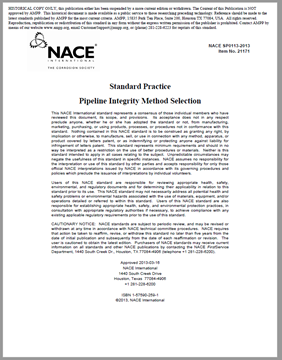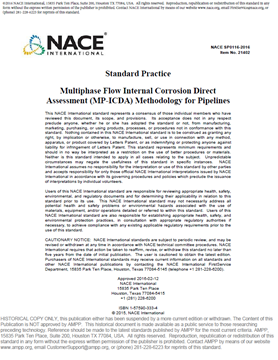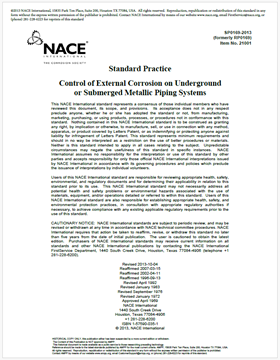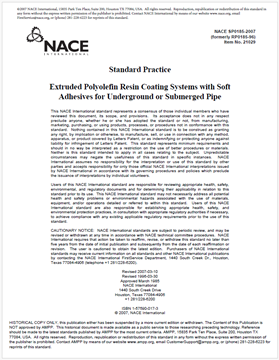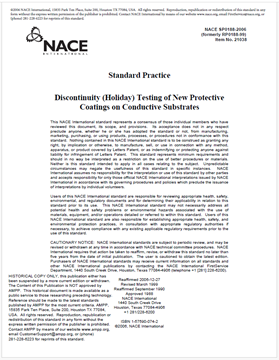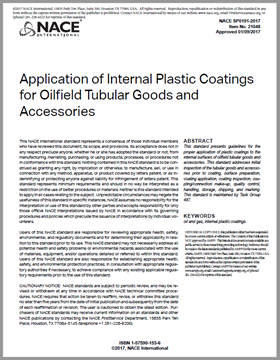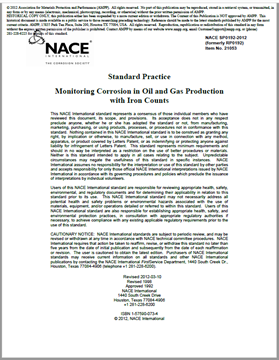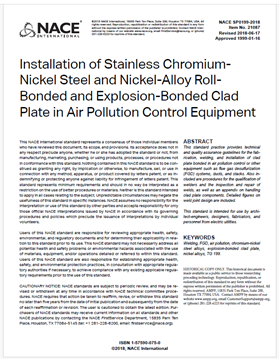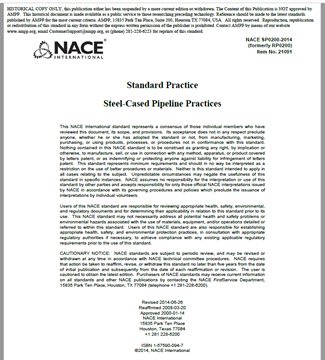Search
Historical Standards
These are standards products which are considered to be historical standards and are offered as a complimentary benefit to corporate members.
View as
Sort by
Display
per page
NACE SP0113-2013, "Pipeline Integrity Method Selection"
Product Number:
21171-SG
Publication Date:
2013
$179.00
NACE SP0116-2016, Multiphase Flow Internal Corrosion Direct Assessment (MP-ICDA) Methodology for Pipelines
Product Number:
21402-SG
Publication Date:
2016
$179.00
NACE SP0169-2013 (formerly RP0169), "Control of External Corrosion on Underground or Submerged Metallic Piping Systems"
Product Number:
21001-SG
Publication Date:
2013
$179.00
NACE SP0185-2007 (formerly RP0185), Extruded Polyolefin Resin Coating Systems with Soft Adhesives for Underground or Submerged Pipe
Product Number:
21029-SG
Publication Date:
2007
$179.00
NACE SP0188-2006 (formerly RP0188), Discontinuity (Holiday) Testing of New Protective Coatings on Conductive Substrates
Product Number:
21038-SG
Publication Date:
2006
$179.00
NACE SP0191-2017 (formerly RP0191), "Application of Internal Plastic Coatings for Oilfield Tubular Goods and Accessories"
Product Number:
21048-SG
Publication Date:
2017
$179.00
NACE SP0192-2012 Monitoring Corrosion in Oil and Gas Production with Iron Counts
Product Number:
21053-SG
Publication Date:
2012
$179.00
NACE SP0199-2018, Installation of Stainless Chromium-Nickel Steel and Nickel-Alloy Roll-Bonded and Explosion-Bonded Clad Plate in Air Pollution Control Equipment
Product Number:
21087-SG
Publication Date:
2018
$179.00
NACE SP0204-2008, Stress Corrosion Cracking (SCC) Direct Assessment Methodology
Product Number:
NACE SP0204-2008
Publication Date:
2008
$179.00
NACE SP0205-2015 (formerly RP0205) Design, Fabrication, and Inspection of Tanks for the Storage of Petroleum Refining Alkylation Unit Spent Sulfuric Acid at Ambient Temperatures
Product Number:
21313-SG
ISBN:
1-57590-203-6
Publication Date:
2015
$179.00
NACE SP0206-2006, Internal Corrosion Direct Assessment Methodology for Pipelines Carrying Normally Dry Natural Gas (DG-ICDA)
Product Number:
NACE SP0206-2006
Publication Date:
2006
$179.00

